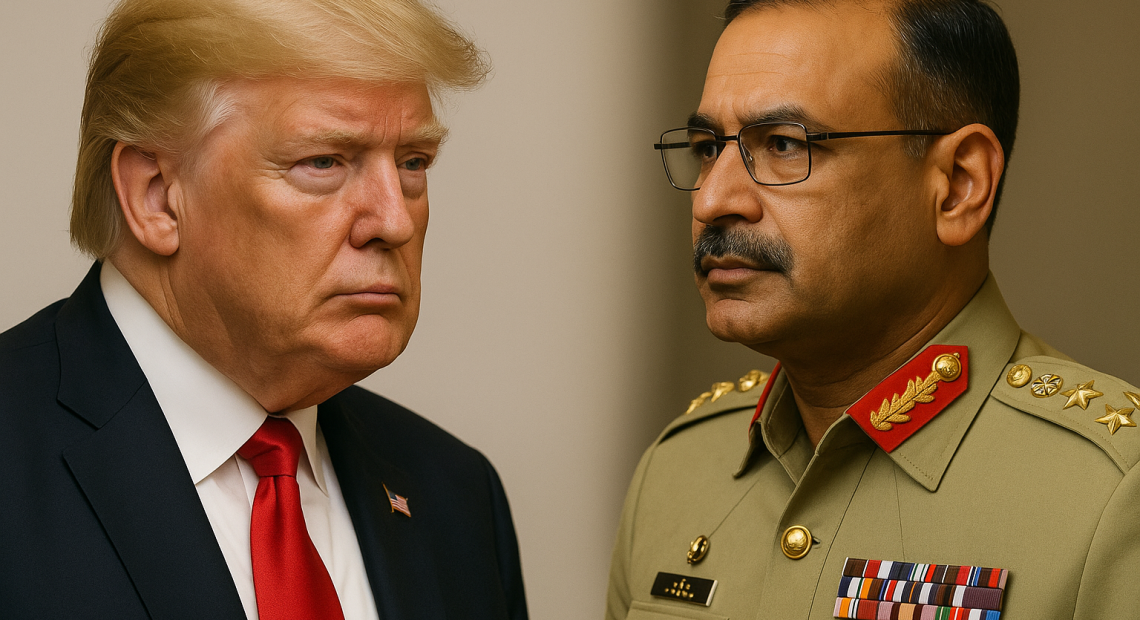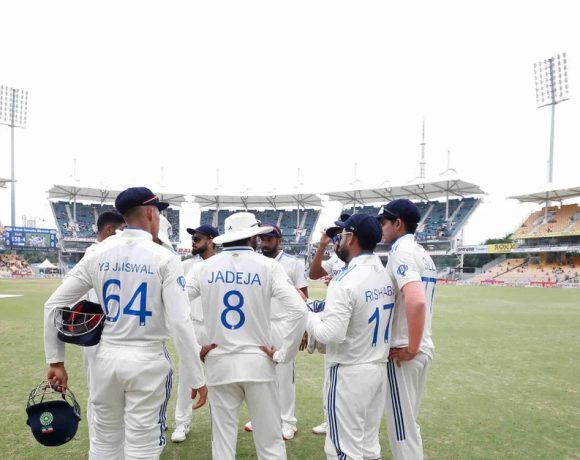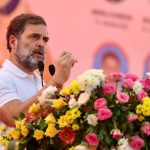
When the Beggar Sings and the Giant Sleeps
While the world watched a former pariah walk into the White House, Asim Munir, the chief of Pakistan’s army, took his seat across from President Donald Trump at a high-profile luncheon that felt more like a stage play than diplomacy. He smiled, praised Trump’s supposed role in preventing a nuclear war with India, and even floated the idea of a Nobel Peace Prize. All this while Pakistan reels under economic collapse, international suspicion, and an ever-deepening alliance with China. Yet, there he was — the general of a near-failed state — being embraced as a regional peacemaker.
On the other side of the table — metaphorically and quite literally — sat India, the regional power that actually matters. A country with the credibility, economic strength, and global standing to shape narratives. But it didn’t. As Trump and Munir performed their carefully coordinated dance, India responded with the diplomatic equivalent of crossed arms and a dismissive shrug. No aggressive rebuttal, no narrative correction, no strategic outreach to global media. Only denials of mediation and dry press statements from South Block.
This contrast — between Pakistan’s desperate singing and India’s silent slumber — isn’t new. But it has never been more dangerous. In a world driven by perception, noise matters. And right now, the noise is coming from Islamabad and Washington, not New Delhi. This isn’t about needing to beg like Pakistan does. It’s about choosing not to be absent when your own story is being rewritten by others.
Pakistan has long perfected the art of selling its chaos as strategic currency. When its economy collapses, it doesn’t reform — it performs. And the star performers are always in uniform. Field Marshal Asim Munir’s sudden embrace of Donald Trump isn’t a shift in policy; it’s muscle memory. For decades, Pakistan’s military elite have danced between Washington, Riyadh, and Beijing — offering just enough cooperation to stay relevant, and just enough instability to stay indispensable. It is survival diplomacy, driven not by strength but by necessity.
Pakistan knows it cannot be trusted, so it makes itself useful. It plays middleman in Afghanistan, backchannel in Iran, and gatekeeper of jihadist influence in the region. It cannot produce economic growth, but it can produce leverage. When Trump needed a diplomatic win, Munir offered him one: the illusion that the United States helped stop a nuclear war in South Asia. Never mind that the conflict itself was allegedly triggered by Pakistan’s own terror proxies. In this twisted logic, Pakistan sets the fire and is then applauded for helping blow out the smoke.
The language of this new friendship was telling. Munir didn’t demand respect; he offered flattery. He didn’t seek partnership; he praised leadership. Suggesting a Nobel Peace Prize for Trump wasn’t just opportunism — it was auditioning for continued aid, weapons, and global legitimacy. And it worked. In a transactional world, where ego outweighs evidence, Pakistan’s strategy doesn’t need truth — it only needs timing. Munir had perfect timing.
India’s foreign policy has long rested on the principle of strategic autonomy — the idea that it will not be drawn into alliances, ideological camps, or other people’s wars. It has served the country well in many ways. India didn’t mortgage its sovereignty during the Cold War. It didn’t get trapped in the quagmires of Iraq or Afghanistan. It stood by its decision to not condemn Russia outright over Ukraine and resisted Western pressure over oil purchases. It’s a position rooted in dignity — but increasingly, that dignity is mistaken for disengagement.
In the Trump–Munir affair, India chose silence. It didn’t push back against Trump’s public claim of mediating peace between nuclear powers. It didn’t expose the irony of the U.S. President hosting a man allegedly complicit in cross-border terrorism. It didn’t flood global platforms with its own version of events. Instead, it stuck to tired talking points: “no third-party involvement,” “India doesn’t require mediation,” and “our position is clear.” Maybe it is. But to the rest of the world, clarity doesn’t matter if it’s whispered while others shout.
This isn’t a question of whether India should flatter Trump or play to his ego. It’s a question of narrative — and India, the rightful voice of reason in this region, chose not to speak when it mattered. The result is simple and dangerous: the world sees Pakistan trying, and India retreating. In geopolitics, appearances are everything. Even when India is right, its silence hands the microphone to those who are wrong. That’s not strategic restraint. That’s strategic naivety.
For China, Pakistan is not an ally. It is an investment — one that has yielded ports, pliable generals, and proximity to both Iran and India’s soft underbelly. The China–Pakistan Economic Corridor wasn’t just infrastructure; it was insurance. Insurance that Pakistan would remain in Beijing’s orbit, too indebted and too entangled to drift toward the West. So when Asim Munir strolls into the White House and wraps Trump in praise, Beijing isn’t furious — not yet. But it is watching, calculating, and quietly updating its risk assessment.
China understands Pakistan’s survival instinct. It knows the generals in Rawalpindi will bend in whatever direction keeps the dollars flowing and the regime intact. It has tolerated Pakistan’s occasional flirtations with the U.S. before, especially during the War on Terror, because Beijing believes in leverage, not loyalty. But the moment Pakistan appears to be offering real military access, intelligence sharing, or strategic favors to Washington — especially on issues like Iran or the Middle East — China’s tolerance will end.
And the consequences will be silent but suffocating. Funds will dry up. Port projects will stall. Military cooperation will be slowed, if not frozen. China doesn’t scream betrayal. It bleeds you out quietly. Munir knows this. But right now, he’s betting that Trump’s goodwill is worth more than China’s cold calculations — at least until the next crisis. It’s a risky bet, and if history is any guide, Pakistan’s loyalty lasts only as long as its last transaction. China might still hold the leash, but it’s starting to notice the dog is barking at another master.
The Pahalgam attack should have been a defining moment for Indian diplomacy. A brazen cross-border strike, attributed to Pakistan-based handlers, nearly pushed two nuclear-armed nations to war. India’s military response was swift, calibrated, and, by most accounts, effective. Reports suggest that the threat of escalation was credible enough to force Pakistan into damage control. For once, India held the cards — militarily, morally, and strategically. But instead of using that leverage to assert its version of the crisis on the global stage, India quietly moved on.
What followed was the hijacking of India’s moment. Donald Trump, never one to miss an opportunity for self-congratulation, positioned himself as the peacemaker who prevented a nuclear catastrophe. Asim Munir eagerly validated this narrative, offering Trump not just thanks, but glory. The world media, always eager for drama, ran with it. Suddenly, a crisis India contained was being credited to American mediation and Pakistani cooperation. And India’s only response? A muted denial, buried in a Ministry of External Affairs press release.
This is the price of diplomatic passivity. India may have won on the ground, but it surrendered the airspace of perception. It had a chance to expose Pakistan’s duplicity, to remind the world of Trump’s past denunciations of Islamabad, and to define the regional power balance on its terms. Instead, it watched the narrative slip into the hands of two men who have far less to offer in truth, but far more hunger for attention. When power isn’t projected, it’s repackaged — often by those who least deserve it.
There’s no denying that India is the stronger nation — economically, politically, and diplomatically. It doesn’t need to beg like Pakistan, nor does it have to lunge at every opportunity for validation. But strength, when unspoken, often looks like indifference. And silence, when sustained, becomes absence. While Pakistan sings for its supper in Washington and flatters its way into Trump’s headlines, India remains a spectator — standing tall, but saying nothing. Dignity may be a virtue, but in geopolitics, visibility is power.
When Asim Munir praises Trump and offers peace, it’s theatre. When Trump accepts the flattery, it’s opportunism. But when India refuses to counter, it becomes complicity in a falsehood. This is not about stooping to Pakistan’s level. It’s about rising to the moment. It’s about reclaiming the stage before someone else rewrites your part. India doesn’t need to beg, but it does need to speak, engage, and confront — not just in Delhi briefings, but on the global stage where perception is policy.
Because if the beggar keeps singing and the giant keeps sleeping, one day the world will forget which one was stronger. They’ll only remember who told the better story.


















